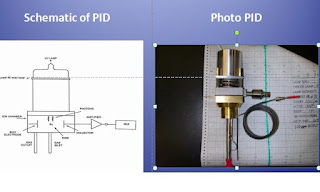Coming to New Orleans, LA in April 2013: a two day symposium on Arsenic Contamination in Food and Water
244th American Chemical Society National Meeting
Philadelphia, PA
Monday Evening SCI-MIX 8/20/12 & Wednesday Evening 8/22/12
Document ID: 15727
 |
| Jack Driscoll and Greg Cutter 2011 aboard the RV/Knorr |
Program Area: ENVR: Division of Environmental Chemistry
Symposium Title: (ENVR008p) General Posters
Program Area: ENVR: Division of Environmental Chemistry
Symposium Title: (ENVR009) Environmental Chemistry Sci-Mix Session
INSTITUTIONS
1. PID Analyzers, LLC, Sandwich, Massachusetts, US, 02563, United States
2. Old Dominion University, Norfolk, VA, United States
 |
| Jennifer Maclachlan, Jack Driscoll, Greg and Carey Cutter |
AUTHORS
1. Jack N. Driscoll1 , PID Analyzers, LLC, 2 Washington Circle, #4, Sandwich, Massachusetts, US, 02563, United States , 6176994307, United States, pidguy@aol.com
2. Jennifer L Maclachlan1 , PID Analyzers, LLC, 2 Washington Circle, #4, Sandwich, Massachusetts, US, 02563, United States , 6176994307, United States, pidgirl@gmail.com
3. Gregory Cutter2 , Old Dominion University, Dept of Ocean, Earth and Atmospheric Sciences, 5115 Hampton Boulevard, Norfolk, VA, 23529, United States , 757-683-4929, gcutter@odu.edu
4. James Maclachlan, PID Analyzers, LLC, 2 Washington Circle, #4, Sandwich, Massachusetts, US, 02563, United States , 6176994307, United States, sales@hnu.com
4. James Maclachlan, PID Analyzers, LLC, 2 Washington Circle, #4, Sandwich, Massachusetts, US, 02563, United States , 6176994307, United States, sales@hnu.com
Title: Photoionization (PID) and GC-PID method for the measurement of arsenic in food and juice
Abstract Body: Numerous methods have been described in the literature for the determination of arsenic both in water and in particulate matrices. Many of these methods essentially employ the same principles, but apply different reagents, concentrations or instrumentation. The most popular techniques for arsenic analyses include hydride generation and AA, ICP-OES or ICP-MS. Although many water labs have these types of spectrometers already, many labs do not. The cost of these types of spectrometers is in the $100-200K price range.
Many labs would have to choose the older colorimetric methods but we have developed and modified the PID and GC-PID methods for arsenic in water analysis at ppb levels (1) to work with food and juice. The system cost is a fraction of the $100K spectrometer price.
Photoionization (2) & GC-PID (3) have been used to measure low ppb levels of As (3), As (5), total arsenic and organo arsenic compounds (GC-PID) in water. The latter method by Cutter (2) is one of the most sensitive methods available for arsenic in water with a detection limit of 0.075 ug/L and the ability to separate arsine, organoarsenic compounds and other organo metallic hydrides.
We will describe the modifications of the new method for arsenic in food and juice as well as the interferences, accuracy and precision for those samples.
- Driscoll, JN and GA Cutter, “Total and Speciated Arsenic Compounds in Water by Photoionization and Gas Chromatography/PID”in "Toxic Trace Metal Remobilization & Remediation - A Geochemical Body of Work" to be published by the ACS (2012)
- Driscoll JN, D. Lewis, R. Keip, J . Ann, H. Hu, , , DETERMINATION OF ARSENIC IN WATER AT LOW PPB LEVELS,Pittsburgh Conference on Anal. Chem…, Paper # 2350-7, March 2006
- Cutter, G.A. and L.S. Cutter.. The biogeochemistry of arsenic and antimony in the North Pacific Ocean. Geochem. Geophys. Geosystems (G3), 7, Q05M08, doi:10,1159, 2006
Check out @pidgirl's *Arsenic* Board on Pinterest here







No comments:
Post a Comment